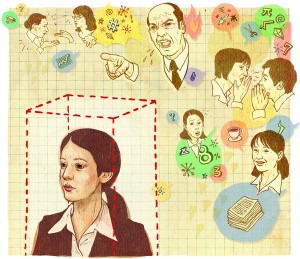
June 23, 2015
Although this article is dated to September 21, 2013; Katherine Bouton from the New York Times presents a difficult situation that people with disabilities may undergo. Hidden disabilities has grown in awareness around the community and it is important to understand that people live with these disabilities.
This article reads…
A YOUNG woman with hearing loss wrote to me recently about being interviewed for a senior position in a major library system. She was well qualified for the job, and as her interviews progressed through the day, she sensed that she was about to be offered the job.
Then the top executives invited her to continue the discussion over drinks. The bar was noisy and she couldn’t keep up with the conversation. She didn’t get the job.
The woman, who asked me not to use her name, is among those whom the Americans With Disabilities Act can have a hard time protecting: people with hidden disabilities.
What should she have done? During the interview process she might have disclosed her hearing loss in a way that showed how effectively and creatively she compensated for it. When the drinks suggestion was made, she might have said: “I’d prefer we met in a quiet place so I could respond more easily. Would that be O.K.?”
But the woman’s choice not to disclose her disability was understandable. In fact, Joyce Bender, who owns a search firm in Pittsburgh that helps place people with disabilities, says that revealing a disability in an interview should be avoided if possible. And it should not be mentioned on a résumé, she says, as doing so may mean never reaching the interview stage.
Continue reading on New York Times.
